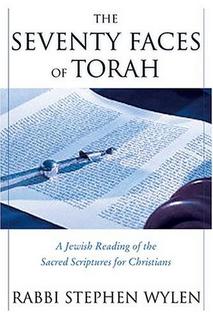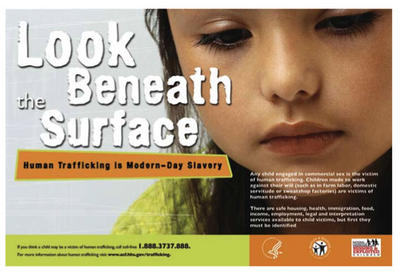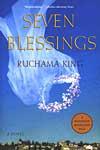
Continued from previous page
A University of Connecticut Department of Public Policy study found that journalists who were surveyed picked Democrat John Kerry over George Bush in the 2004 election by a margin of over 2-to-1. In another survey, only 12 percent of local reporters, editors, and media executives are self-described conservatives.
The Christian Science Monitor reported last year on the findings of the non-partisan Pew Research Center which found “the gap between journalists and other Americans particularly wide on social issues.”
547 journalists and executives in a wide range of print and broadcast organizations were surveyed. 88 percent thought “society should accept homosexuality; about half the general public agrees. And while about 60 percent of Americans say morality and a belief in God are inexorably linked, only 6 percent of national journalists and executives surveyed believe that.”
Liberal media bias is old news.
What is news is that lately, this bias has turned ugly and in some cases, downright hostile.
A newspaper in which my column appears recently dished up an editorial written in response to my column, “Liberals apply double standard when it comes to religion.”
Entitled “The right is wrong,” the editorial led with a laundry list of complaints: “The religious right wants to outlaw abortion, permanently ban embryonic stem-cell research, require the teaching of creationism in schools and funnel ever-more federal money to religious groups.”
The hand-wringing continued several paragraphs later as Christians were compared to mullahs desiring a theocracy in America. “But what distinguishes a democracy from a theocracy except the wall dividing church and state?”
The title of the editorial reminded me of the prophet Isaiah’s words “Woe to those who call… good evil.” That the religious right would like to see the genocide of pre-born humans halted is not news. And raising a race of slaves for the sole purpose of harvesting their body parts should be abhorrent to all but the most barbaric. What is it that evolutionists fear when the teaching of “creationism” (Intelligent Design is a better metaphor) is proposed in public schools? Are evolutionists so insecure in their own religion, which requires its adherents to practice faith in spontaneous generation—a “theory” debunked centuries ago by modern science, that they cannot stand to have their ideas challenged? And why not fund faith-based organizations if indeed they are the most effective in solving the societal problems that continue to plague us?
If the media wishes to characterize Judeo-Christian influence in American culture as a breach in “the wall of separation,” its members need to go back to school and brush up on their American history. Their hallowed “wall” is not mentioned in any of the founding documents of our country; including the Declaration of Independence, the Constitution and the Bill of Rights.
The concept of separation of church and state comes from a phrase used by Thomas Jefferson in a private letter written to a group of Baptists in Danbury Connecticut to quell their fears that the First Amendment’s guarantee of free religious expression implied it was a freedom that was only government-given and not God-given.
Jefferson wrote, “Believing with you that religion is a matter which lies solely between man and his God; that he owes account to none other for his faith or his worship; that the legislative powers of government reach actions only and not opinions, I contemplate with sovereign reverence that act of the whole American people which declared that their legislature should ‘make no law respecting an establishment of religion or prohibiting the free exercise thereof,’ thus building a wall of separation between Church and State. Adhering to this expression of the supreme will of the nation in behalf of the rights of conscience, I shall see with sincere satisfaction the progress of those sentiments which tend to restore to man all his natural rights, convinced he has no natural right in opposition to his social duties.”
Author and historian David Barton explains, “Jefferson’s reference to ‘natural rights’ invoked an important legal phrase which was part of the rhetoric of that day and which reaffirmed his belief that religious liberties were inalienable rights. While the phrase ‘natural rights’ communicated much to people then, to most citizens today those words mean little. By definition, ‘natural rights’ included ‘that which the Books of the Law and the Gospel do contain.’ That is, ‘natural rights’ incorporated what God Himself had guaranteed to man in the Scriptures. Thus, when Jefferson assured the Baptists that by following their ‘natural rights’ they would violate no social duty, he was affirming to them that the free exercise of religion was their inalienable God-given right and therefore was protected from federal regulation or interference.”
“Jefferson believed that God, not government, was the Author and Source of our rights and that the government, therefore, was to be prevented from interference with those rights. Very simply, the…‘wall’ of the Danbury letter w[as] not to limit religious activities in public; rather [it] w[as] to limit the power of the government to prohibit or interfere with those expressions.”
“Thomas Jefferson had no intention of allowing the government to limit, restrict, regulate, or interfere with public religious practices. He believed, along with the other Founders, that the First Amendment had been enacted only to prevent the federal establishment of a national denomination.”
Jefferson’s intentions were very clear.
What is not clear is why this must be explained by a businessman moonlighting as a newspaper columnist.
Gregory J. Rummo is an author and columnist. His second book, “The View from the Grass Roots—Another Look,” is available from amazon.com or the author's website, www.GregRummo.com.
GregRummo.comReturn to main page to comment on article.
Main page








